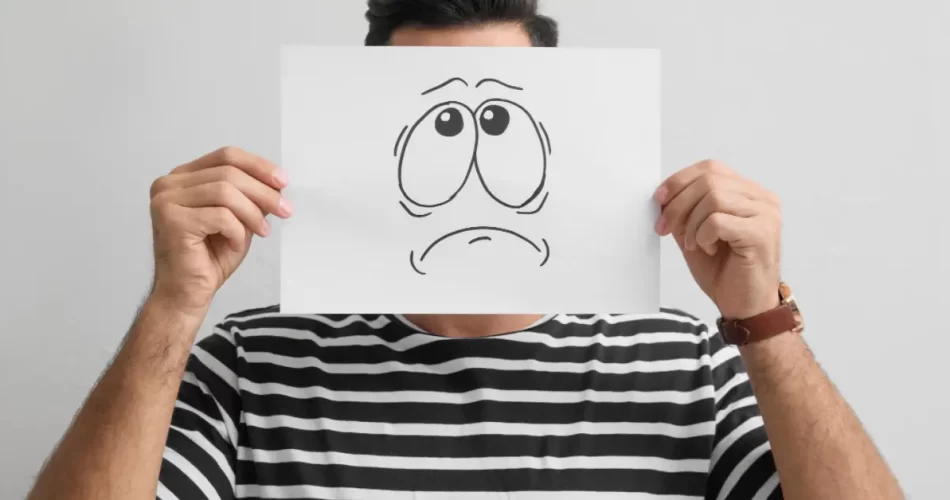Last Updated on 4 March 2024 by Bukhosi Moyo
A nervous breakdown, also known as a mental health crisis or mental breakdown, is a term used to describe a period of intense mental distress or illness.
During this period, you may be unable to function in your everyday life.
The term “nervous breakdown” is not a medical term, and it is no longer used by mental health professionals.
Instead, they may use terms like “mental health crisis” or “acute episode of a mental health condition.
In this post, we’ll explore the concept of a nervous breakdown, its symptoms, causes, and how to seek help. Let’s dive in!
Key Facts
- A nervous breakdown, also called a mental health crisis, represents intense mental distress, impacting daily functioning.
- The term “nervous breakdown” is no longer used by mental health professionals, who prefer more precise terms like “mental health crisis.”
- Symptoms of a nervous breakdown vary but may include emotional, physical, and behavioral signs, necessitating professional help.
- Potential causes encompass high stress levels, trauma, genetics, and substance abuse.
- In South Africa, mental health crises are prevalent due to poverty, violence, stigma, and limited access to mental health services.
- Recognizing the issue, seeking help, and offering support are essential steps in helping those facing a nervous breakdown.
- Remember, it’s okay not to be okay, and recovery and hope are always within reach.
Symptoms of A Nervous Breakdown
The symptoms of a nervous breakdown can vary from person to person, but they may include:
- Emotional symptoms: Feeling overwhelmed, hopeless, helpless, or anxious. Having difficulty concentrating or making decisions. Experiencing mood swings, irritability, or outbursts of anger, fear, or crying. Feeling detached from yourself or your surroundings. Having thoughts of self-harm or suicide.
- Physical symptoms: Insomnia, exhaustion, frequent illnesses, headaches, stomachaches, muscle tension, changes in appetite, and difficulty sleeping.
- Behavioral symptoms: Withdrawing from social activities or relationships, losing interest in activities you used to enjoy, neglecting your personal hygiene, or making impulsive decisions.
If you are experiencing any of these symptoms, it is important to seek professional help immediately.
A mental health professional can help you identify the underlying cause of your symptoms and develop a treatment plan.
Causes Of Nervous Breakdown
- High Stress Levels: The pressures of work, family, and personal responsibilities can pile up, leaving you feeling overwhelmed.
- Trauma or Loss: Sudden or prolonged traumatic experiences, like losing a loved one or surviving a disaster, can trigger a breakdown.
- Genetics and Predisposition: Some individuals may be genetically predisposed to mental health conditions that increase the risk of a breakdown.
- Substance Abuse: Alcohol or drug abuse can exacerbate the risk and severity of a nervous breakdown.
Prevalence In South Africa
The prevalence of nervous breakdowns, or mental health crises, in South Africa is high.
According to a 2022 study, 25.7% of South Africans are probably depressed, and 29.3% have probable anxiety.
This is significantly higher than the global prevalence rates of 10% for depression and 13% for anxiety.
There are a number of factors that contribute to the high prevalence of mental health crises in South Africa, including:
- Poverty and inequality: South Africa is a highly unequal country, with a large proportion of the population living in poverty. Poverty and inequality are associated with a number of mental health problems, including depression and anxiety.
- Violence and trauma: South Africa has a high rate of violence, including crime and domestic violence. Exposure to violence and trauma can lead to post-traumatic stress disorder (PTSD) and other mental health problems.
- Stigma and discrimination: Mental health problems are often stigmatized and discriminated against in South Africa. This can prevent people from seeking help when they need it.
- Lack of access to mental health services: Public mental health services in South Africa are underfunded and overstretched. This means that many people who need mental health care cannot access it.
Conclusion
In South Africa and around the world, nervous breakdowns are a reality for many.
The first step to addressing this issue is understanding what it means and recognizing the symptoms.
By seeking help and fostering a supportive environment, we can ensure that those going through a nervous breakdown find the care and compassion they need to recover and thrive.
Remember, it’s okay to not be okay, and there’s always hope for a brighter tomorrow.










